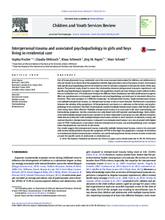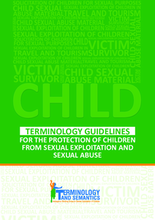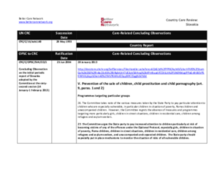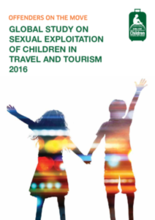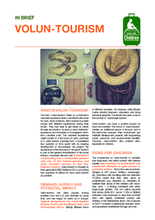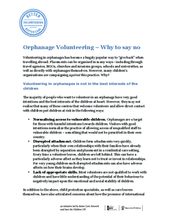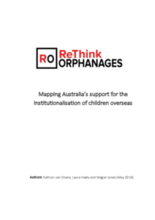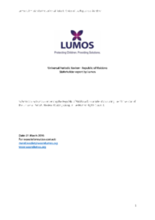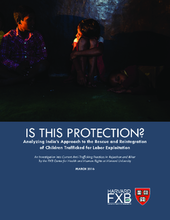Displaying 271 - 280 of 470
The present study aimed to assess the relationship between interpersonal traumatic experiences and specific psychopathological symptoms in a high-risk population of girls and boys living in youth welfare institutions in residential care.
These Terminology Guidelines were developed by an Interagency Working Group to "offer guidance on how to navigate the complex lexicon of terms commonly used relating to sexual exploitation and sexual abuse of children."
Based on an exhaustive review of the global literature and utilising an innovative theoretical framework of ‘altruistic exploitation’, the authors explore the ironic juxtaposition of benefits and harms associated with orphan tourism to the various stakeholders.
This country care review includes the care-related Concluding Observations adopted by the Committee on the Rights of the Child and the Committee on the Rights of Persons with Disabilities.
This report aims to raise awareness and spur action from governments, the tourism industry and civil society organisations to end the sexual exploitation of children in travel and tourism (SECTT).
This brief from ECPAT's Global Study on Sexual Exploitation of Children in Travel and Tourism defines the term "voluntourism" and its risks to children, with a focus on orphanage voluntourism.
A detailed explanation of the problems associated with volunteering in orphanages (residential care centers).
This report “seeks to map Australia’s contribution to residential care institutions for children overseas across a number of sectors and identify opportunities for strategic engagement with various stakeholders in the Australian context.”
In this report, Lumos welcomes actions taken by the Republic of Moldova to prevent child abuse and exploitation during the period between 2011-2015. Lumos further notes c
This report provides a comprehensive and critical analysis of the Indian government’s efforts to rescue and reintegrate children trafficked for their labor.

